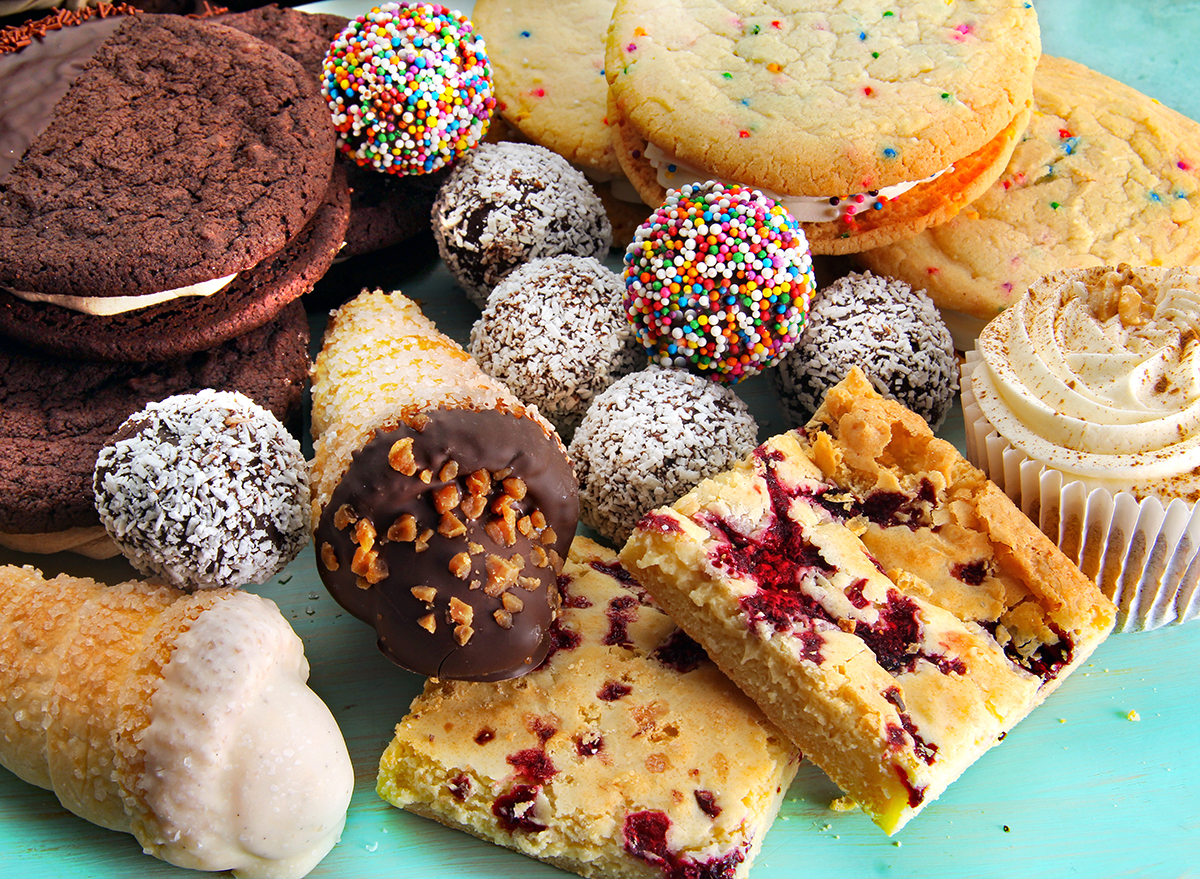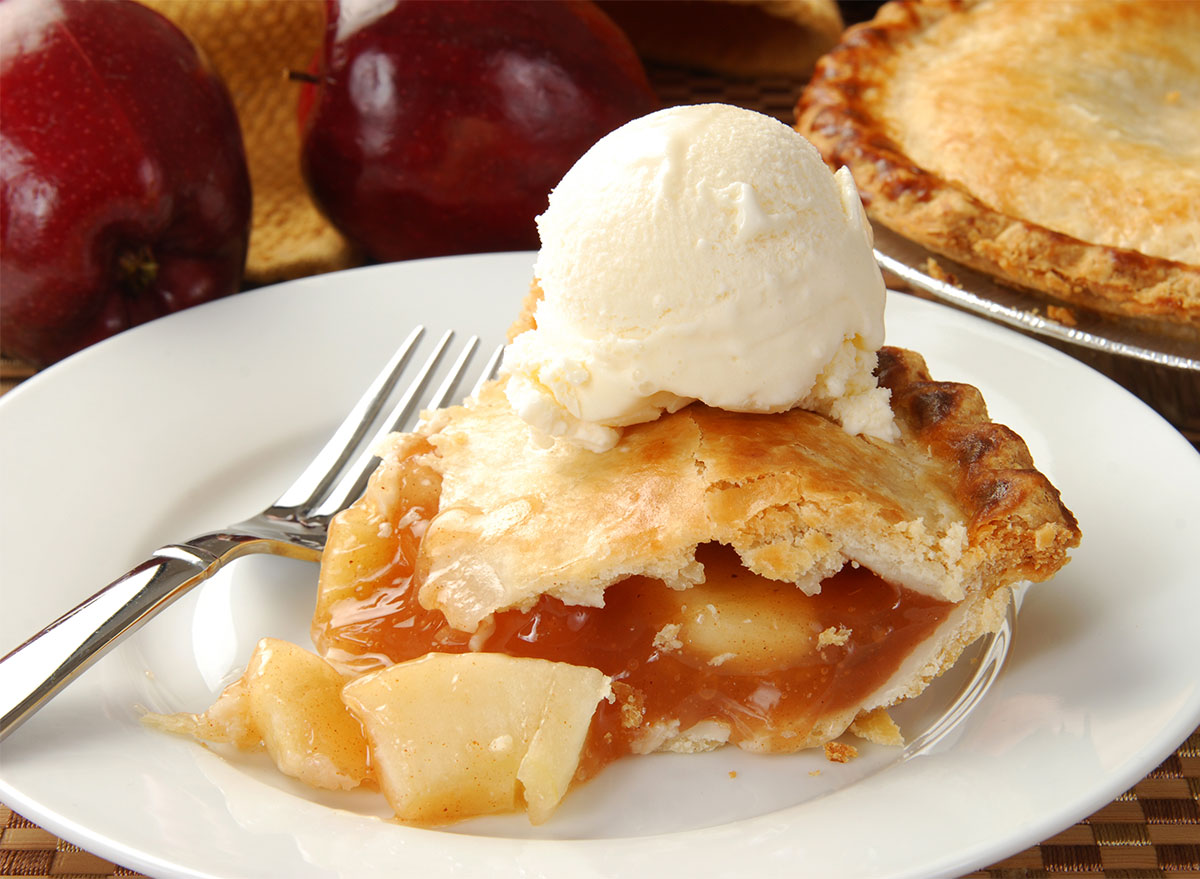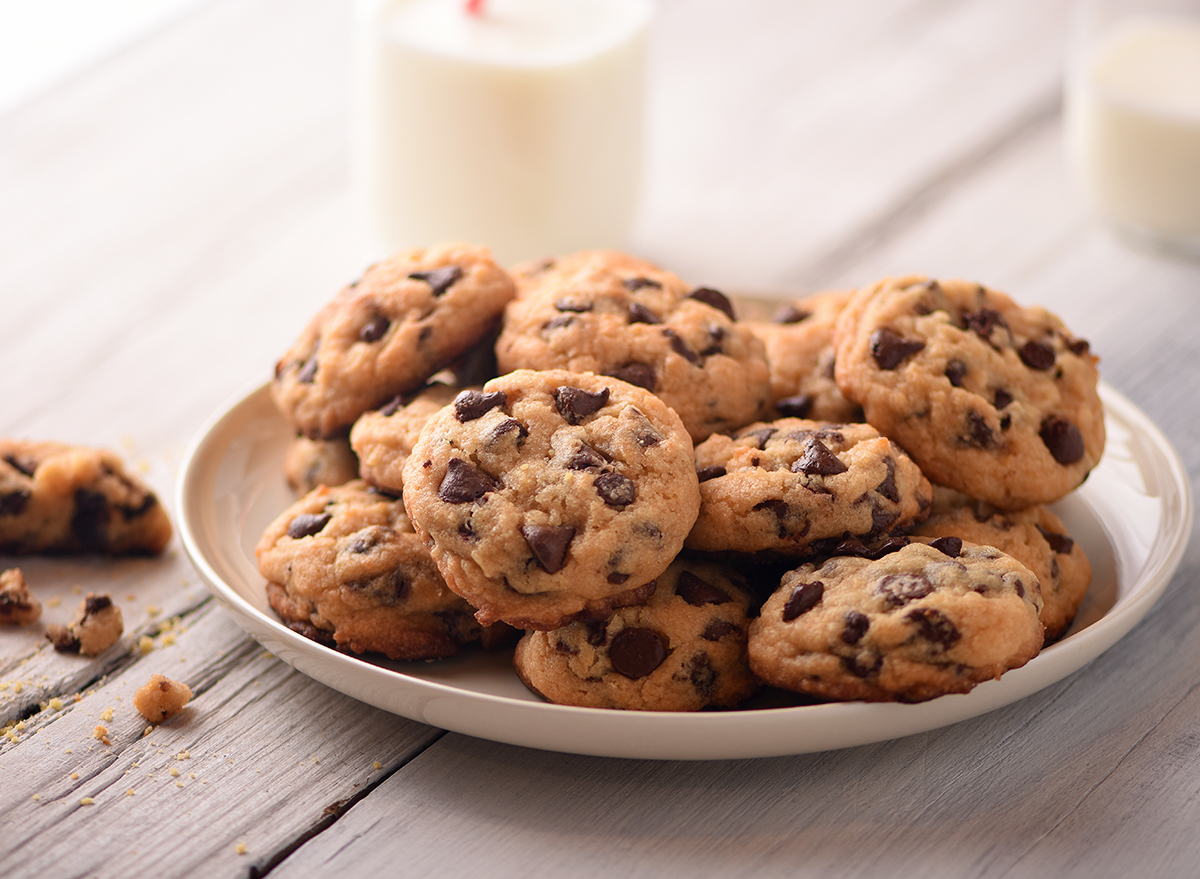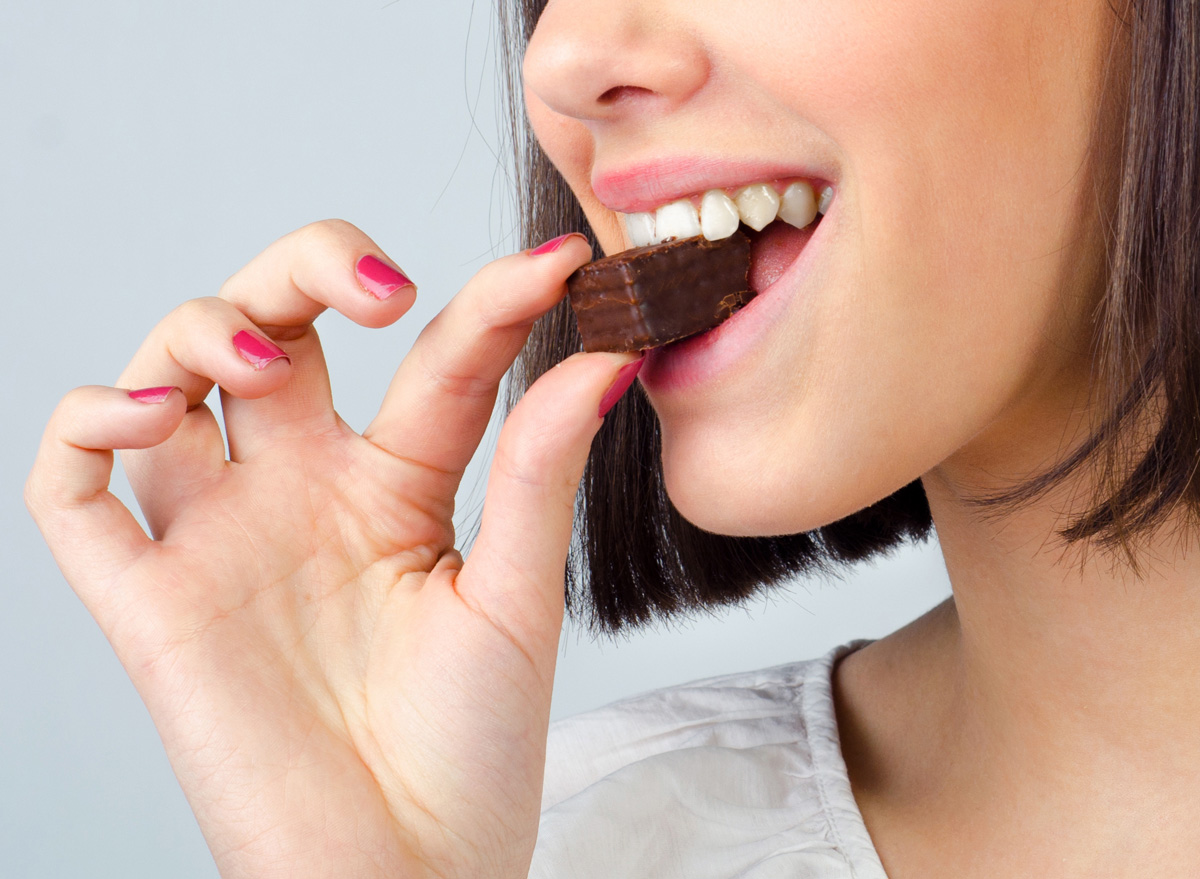Dessert Habits That Are Shortening Your Life, According to Science

Is all dessert bad? Well, of course not. Having a sweet indulgence every now and then (especially if it's one of these 76 Best Dessert Recipes for Weight Loss) is completely fine. It's all about proper portion control! But if you're not watching your portions and intaking a lot of sugar, you can easily fall victim to some of these dessert habits shortening your life.
As health experts with a passion for healthier desserts, we set out to uncover the unhealthy habits that make the after-dinner indulgence truly harmful to a diet. While too much dessert can be detrimental to your health and lifespan, with a few mindful modifications, it's nothing to be afraid of. Eliminate these damaging dessert habits shortening your life, and then enjoy dessert like you were always meant to: wholly, and without regret. And for even more healthy tips, be sure to check out our list of The 7 Healthiest Foods to Eat Right Now.
Eating way too much sugar for dessert.

Here's the thing about sugar: it begets more cravings. When you finish that first piece of pie, you're more likely to crave a second slice than to actually feel full. The more sugar you eat, the more empty calories you intake, which translates to potential weight gain. Plus, explains nutritionist Sharon Katzman, the inflammatory properties of sugar can cause conditions like cancer, heart disease, and maybe even Alzheimer's, according to research.
Katzman recommends stifling these cravings by having a piece of fruit after your dessert. Fruit gives your body the sugar taste it wants, but in a much less processed way. By subbing the second pie slice with an apple, you're saving on sugar and calories, while still appeasing cravings. Plus, most fruits are full of fiber, which is The #1 Thing To Eat Every Day To Lose Weight For Good.
Choosing the option you think is healthier rather than the one you actually want.

Experts insist that if you're going to indulge in dessert, you better go with your favorite.
"Satisfaction plays a huge role in our eating behaviors," says Rachel Fine MS, RD, CSSD, CDN. "Avoiding the option you're truly craving can leave you feeling unsatisfied."
Lisa Young, PhD, RDN and author of Finally Full, Finally Slim, adds that many seemingly healthy dessert alternatives, such as gluten-free or fat-free cookies, actually contain a ton of sugar. Often, when we opt for these "diet versions" of the sweets we want, we end up feeling restricted and eating more, she says.
"My tip? Drop the guilt and enjoy a moderate portion of the real thing." Like how about one of these 25 Low-Calorie Desserts to Buy Under 150 Calories?
Feeling guilty.

Guilt and shame are unhealthy for our minds and bodies, and unfortunately, they are both often linked to dessert consumption in American culture. Katzman says that attaching these emotions to your sweet treat can be devastating for a diet because when a person feels burdened by guilt, they're more likely to give up altogether and binge eat.
Fine also points to this phenomenon as one of the most problematic, when it comes to dessert.
"Labeling your food choices as 'bad' or 'good' makes it hard to enjoy the eating experience, leading you closer to that binge and restrict cycle," she says, "The entire 'eat less' mindset that drives modern diet culture is an extremist view that is bound to fail."
Instead, fall back on these tried-and-true 5 Healthy Dessert Habits For A Flat Belly.
Eating dessert mindlessly.

As with any food, the best way to eat dessert is to do so mindfully—to really savor each bite.
"If you're doing something else that occupies a lot of your attention, you won't pay that much attention to the food that you're chewing and swallowing," says Ben Tanner, PA. "As a result, you won't enjoy it as much, and you won't feel as satisfied afterwards."
Allison Gregg, RD and nutritional consultant for MomLovesBest, says that a perfect example of mindless dessert consumption is when you bring that bowl of ice cream in front of the TV.
"Eating dessert in front of the TV is bad news," says Gregg. "Our focus is shifted from eating to watching television, which tricks our brain into thinking we almost did not eat anything in the first place. It has been proven through multiple studies that eating while watching television increases the amount of food you eat. You may even still feel hungry after eating your dessert."
Eating it too late at night.

Any time you can avoid eating at night, you should. Katzman advises her clients to stop eating at least three hours before bed, and aim for a 13-hour window between the last thing consumed and breakfast the next day.
"Your body doesn't have time to digest the calories you intake late at night," she explains. If you're eating sugary foods, the negative effects are amplified.
Plus, Gregg also adds the later you eat dessert, the more likely it is that you'll bring it to bed with you.
"You're tired, you're hungry, and looking for a convenient option," she says. "However, eating dessert in bed can alter your sleep. If you frequently eat dessert in bed, your bed slowly transforms from a peaceful place to sleep to a place of snack time. Try to avoid eating dessert in bed to avoid sleep becoming disruptive and interrupted."
One sure-fire way to avoid eating dessert too late? Serve it with dinner. Nutritionist Malorie Thompson recommends actually dishing them together, as part of one meal.
"It's less likely to be viewed as a 'special treat' this way and likewise less likely to be over-indulged in," says Thompson.
Get even more healthy tips straight to your inbox by signing up for our newsletter!








